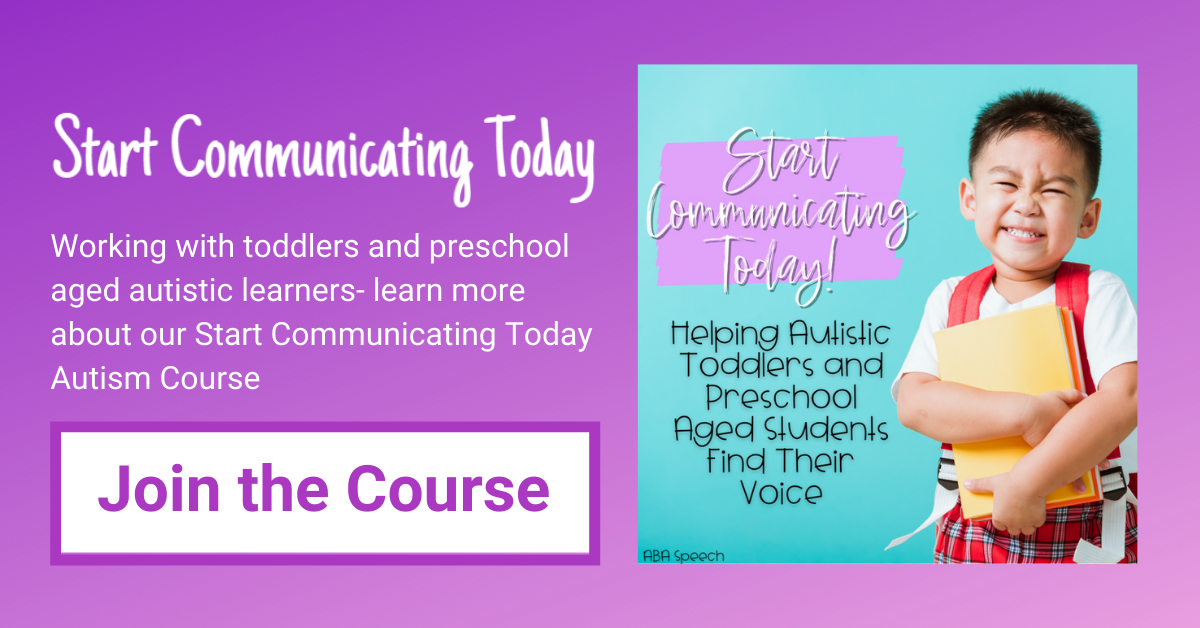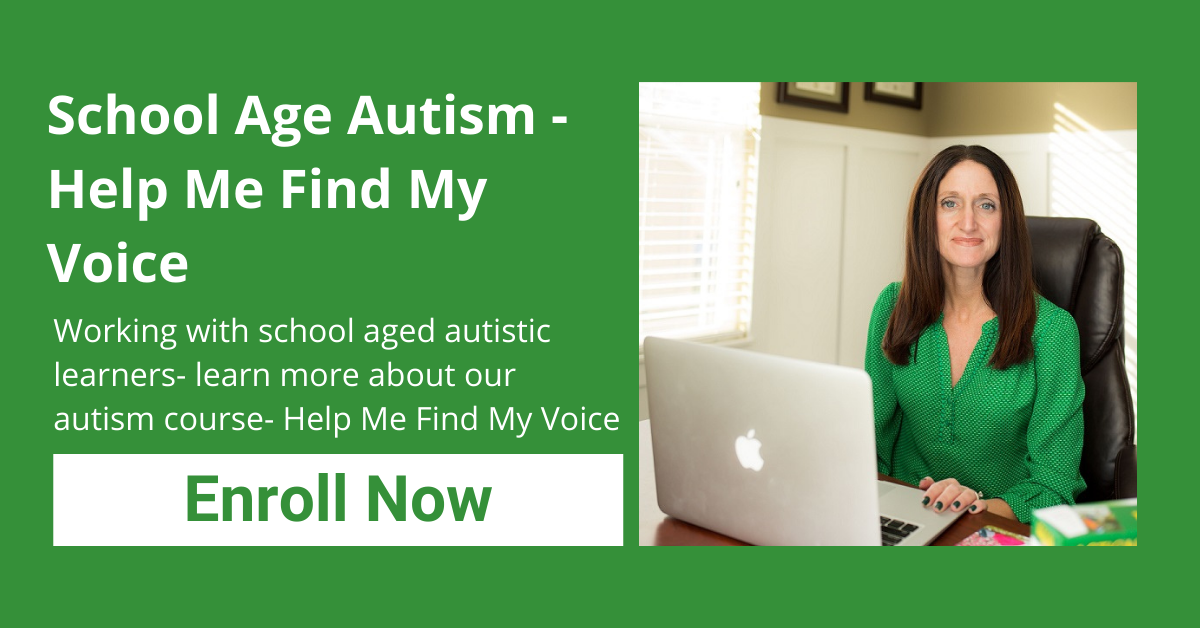[fusebox_track_player url="https://chrt.fm/track/5GD6EB/www.buzzsprout.com/1572088/14810826-173-the-importance-of-compassion-as-a-provider-with-dr-jessica-rohrer.mp3?download=true" title="Episode #173: The Importance of Compassion As a Provider with Dr. Jessica...
Episode #073: Foundational Skills For Young Autistic Learners – Where to start in therapy
https://youtu.be/o99La4zfsUM
NEW: 1.0 ASHA CEUs available!
Listen and earn CEUs for select Autism Outreach podcasts when you join SpeechPathology.com
Enter promo code: AUTISM
Get Started
Many times, assessments and standardized tests don’t tell the whole story of the learner. So, what do you do when you’re overwhelmed with wear to start with a younger nonspeaking or autistic learner. When I first started my career I remember being discouraged at times, and with a lack of the resources available unlike what we have today, I had to find the information myself and blaze that trail. Today I want to share how I get started with these learners, to help them find their voice and start communicating today.
Top 8 Foundational skills for young autistic learners
- Joint Attention – There is power in shared activities, a time that generates spontaneous communication. Both the therapist and the learner in an activity surrounding Literacy, Music, or Play. Check out the episode for my list of favorites!
- Imitation – Keep it fun and functional by practicing during play. The key is playing with similar items in a way that the child will want to repeat. For example, role play with a baby doll.
- Requesting – Work on meaningful words that can make communication powerful for a student’s real life. Specific requesting skills teach students that communicating can get them something!
- Matching – There are so many great skills that come along with matching like scanning and engagement. I share a bit about how I use my favorite resource and modify matching games to work with the students’ level.
- Play – Play routines and leisure skills are SO important. Work on play with fun games, shape sorting, and building around their language level.
- Following One-Step Directions – This is critical not only in school but at home. Be sure to think about your kids and how their communication impacts their day outside of the therapy room. Examples: “Put your coat on” “Stand by the door” etc.
- Labeling – Students should be comfortable talking about things in their environment. Be aware of your student’s level and chronological age, is it appropriate to use flash cards? Or is it important to work on during play?
- Fill in the Blank – “Ready…Set….___” This skill starts with “I say something, you say something”, which opens the door for so much communication, like asking and answering questions!
All of my advice today comes from my experience in private practice, where I am afforded the opportunity to work one on one. Be sure to take into account all of your circumstances, therapy opportunities, and resources when planning to individualize these skills to your students. If you have questions or want to know more about my favorite resources discussed in today’s episode, you can always contact me at ABA Speech.
#autism #speechtherapy
What’s Inside:
- How to know where to start in intervention?
- What to do when assessments don’t deliver clear results.
- Helping students find their voice and start communicating today.
- Real Foundational Skills that can be individualized to your students.
Mentioned In This Episode
— Start Communicating Today Live – ABA Speech
— ABA Speech
Rate, Review & Subscribe
If you found this podcast helpful, please consider rating and reviewing my show! This helps me to support support more people — just like you!
If you have not done so already, subscribe to the podcast. This ensures that you do not miss an episode!
Listen on
Apple Podcasts
Listen on
Stitcher
Subscribe
via Email
You Might Also Like…
Episode #172: They Have a Voice, Are We Listening? with Joe Veneziano and Dr. Shannon Shea
[fusebox_track_player url="https://chrt.fm/track/5GD6EB/www.buzzsprout.com/1572088/14735681-172-they-have-a-voice-are-we-listening-with-joe-veneziano-and-dr-shannon-shea.mp3?download=true" title="Episode #172: They Have a Voice, Are We Listening? with Joe Veneziano...
Episode #171: SLP Services in an ABA Setting- A Conversation with Susan Browning
[fusebox_track_player url="https://chrt.fm/track/5GD6EB/www.buzzsprout.com/1572088/14694844-171-slp-services-in-an-aba-setting-a-conversation-with-susan-browning.mp3?download=true" title="Episode #171: SLP Services in an ABA Setting- A conversation with Susan...

